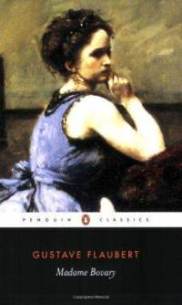Emma Bovary should have stayed on the farm.
Instead, she marries an oafish health officer and rises into the middle class of a country town, where she finds boredom, loneliness, empty promises from romance novels and religion, and fury at the cages in which 19th-century France placed women.
Flaubert’s universe is barren of virtue. There is no tenderness or compassion, no understanding or true friendship, no curiosity or wonder in Madame Bovary. No love either, despite all the talking of it.
Everyone is crass and venal, foolish, pompous, scheming and self-serving, craven, dastardly. Words fail the characters – even Flaubert’s words. The novel’s people are surrounded by his exquisite descriptions of wedding revelry, bustling towns, the beauty of nature, but Flaubert’s words make no impression and bring no consolation.
All anyone sees in Emma Bovary is her beauty, her clothes, and her body. So perhaps it makes sense that when Emma tries to solve the problem of her life – a problem she feels but can’t articulate – she turns to sex and shopping. They lead her to misery and destruction, of course.
I don’t think Emma could see other choices. Who is at fault? Emma Bovary herself? The society in which she lived? Or the world Flaubert made for her? Probably all three.

No comments:
Post a Comment